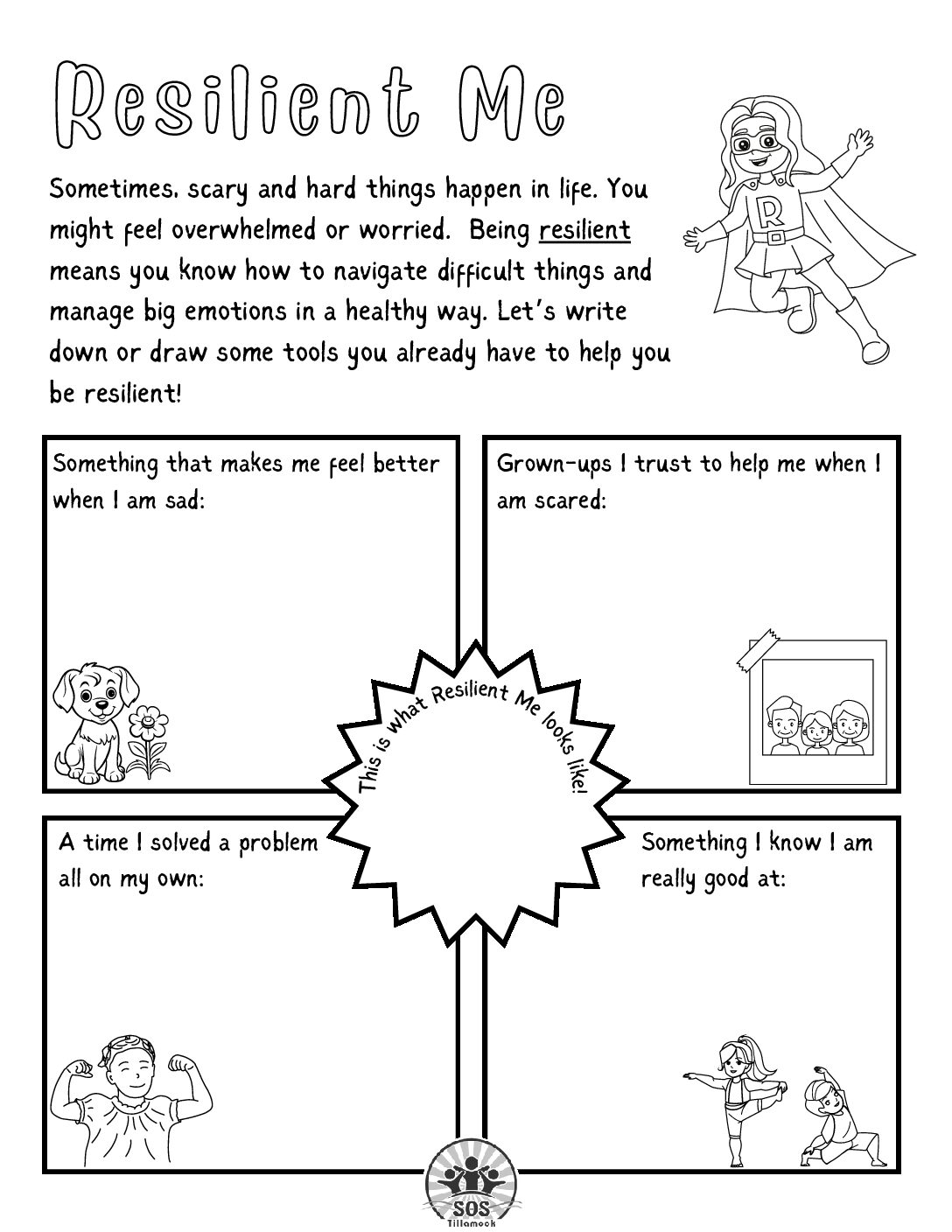Over the last few weeks, I have been reading a great book about addiction*. Preventing addiction is, after all, the core of my work as a Prevention Specialist. One line in particular stuck with me:
“The prevention of substance abuse needs to begin in the crib—and even before then, in the social recognition that nothing is more important for the future of our culture than the way children develop.”
Whether we are talking about addiction, mental health, or any number of other health outcomes, a child’s early development lays the groundwork for their future wellbeing. The notion that a child’s lifelong development is swayed by their earliest years can add a sense of urgency to days that are already strained in time and attention. The good news is that the conversations and daily interactions that parents have with their children are incredibly powerful in building resiliency, and that there are resources right here in Tillamook County to help parents explore what that means. But more on that at the end.
One side of the adolescent-substance-use-prevention coin is directly teaching kids about how alcohol and other drugs are harmful to their health. The Substance Abuse and Mental Health Services Administration’s (SAMHSA) “Talk. They Hear You.” campaign offers information for parents and caregivers on how and when to have conversations about alcohol and other drugs. Though it can feel like children don’t listen, the reality is that parents are among the strongest influences in their child’s decisions around substance use—they do hear you. Consider SAMHSA’s tips on age-appropriate conversations about substances:
- Under age 8: Explain the importance of good health and taking care of their bodies. If they take any vitamins or medications, explain that vitamins are to help them grow and medications are to help them be healthy. However, they should only take vitamins or medications that are given to them by a parent or caregiver, and taking someone else’s medicine could hurt them.
- Ages 8-12: Start asking open-ended questions, like what they have heard about alcohol or drugs. Let them know you are ready to talk if they ever have questions. Use “teachable moments”, like seeing alcohol or substances in movies, ads, or in stores, to explain that these substances are harmful to their bodies and health.
- Ages 13-16: Remember that many teens have peers or friends who may drink or use substances, so be ready to have direct conversations about what they have seen or experienced. Remind them that their brains are still developing until their mid-20s, and that avoiding substances is important to their health and growth. Clearly outline your family rules and expectations about underage substance use.
- Ages 17-20: Maintain clear rules that your child is never to use substances while they are underage or get into a car with a driver who has been drinking or using other drugs. Have conversations about adult responsibilities and decisions, and how they can continue to navigate substances and their health as they become an adult.
The other side of the adolescent-substance-use-prevention coin is, simply put, helping children build resiliency. The ability to manage stress and overcome challenges will serve children for their entire lives. This is certainly easier said than done. Many adults, myself included, struggle to consistently practice heathy ways of coping with stress. Fortunately, parents and caregivers in the Tillamook/Clatsop/Columbia region can take an Active Parenting class for free. This Active Parenting series will teach over 3 sessions: communication, problem-solving, discipline, family enrichment, and encouragement. Active Parenting provides an opportunity for parents to connect, while learning how to make the most out of those daily interactions and conversations with their children, how to pass on resilience, and how to focus on intentional, positive interactions and relationships with our children.
If you want to take advantage of the resources that are available to parents and caregivers, here is how you can find out more:
- “Talk. They Hear You.” webpage: samhsa.gov/talk-they-hear-you/parent-resources
- Active Parenting: The next Active Parenting series will be held on November 7, 14, and 21 from 6:00-7:45pm, via Zoom. To sign up, email MelissaCS@tfcc.org.**
- Parent and Caregiver Resource Workshop: An opportunity to connect with others to learn about and share information on resources available for parents, caregivers & children and why they matter. This workshop will be held on Tuesday, October 8 from 6:00-7:30pm, via Zoom. To sign up, email MelissaCS@tfcc.org.**
- “Resilient Me” is a coloring page for kids to help them identify the tools that they already have to help them be resilient. Download, print, and work through it together!
Be well, and happy fall!
* In the Realm of Hungry Ghosts– for any who are curious. Though first published 17 years ago, the content and propositions have largely stood the test of time.
**Mis is one of the amazing facilitators for Active Parenting, and is an invaluable resource for parenting education here in Tillamook County. Attending her sessions fills the soul!
Written by: Sarah Ermer, MPH, CHES; Prevention Specialist at Tillamook Family Counseling Center

